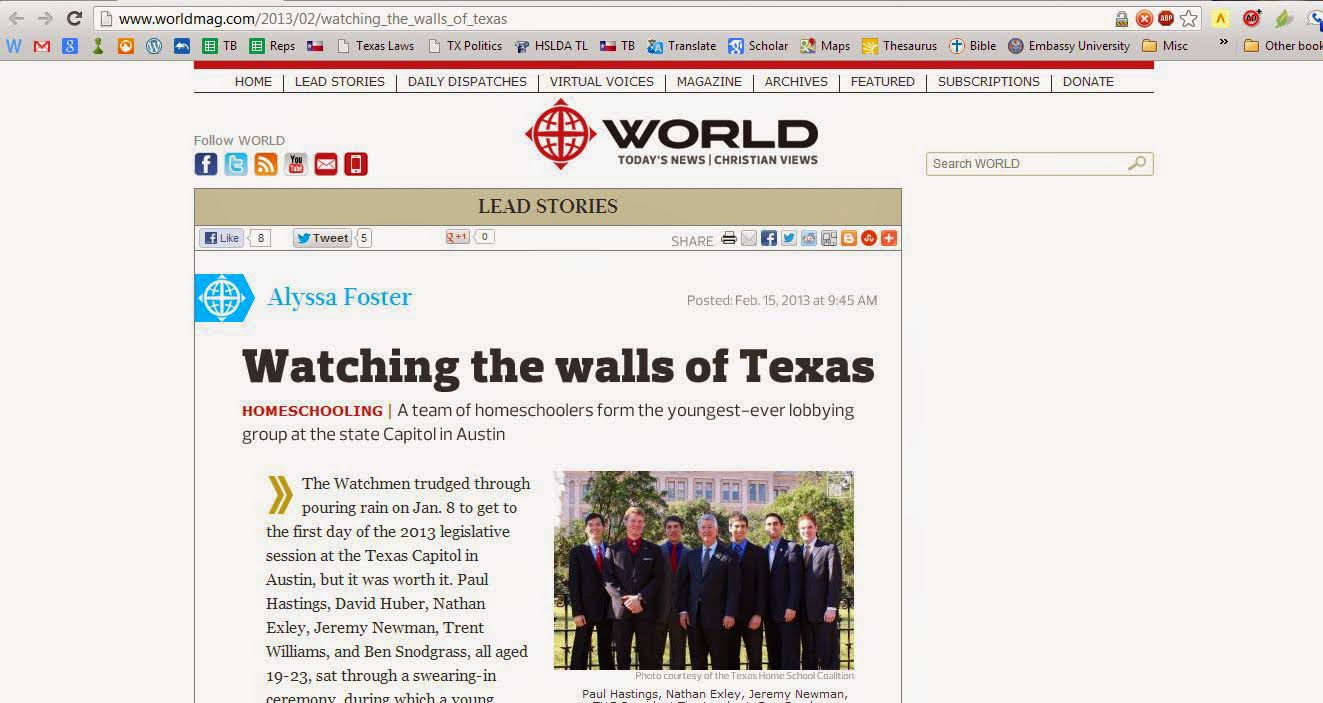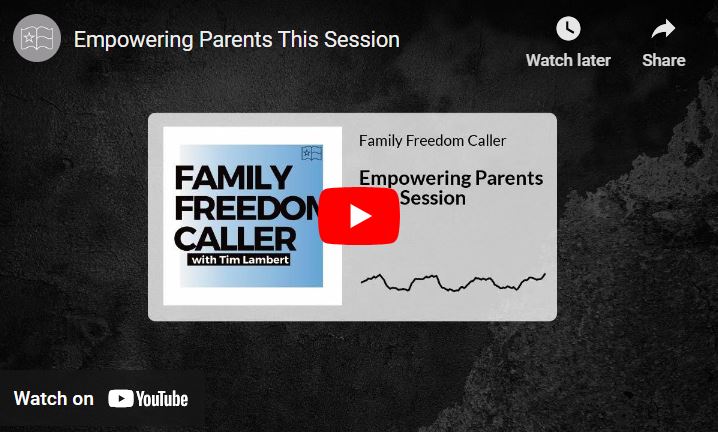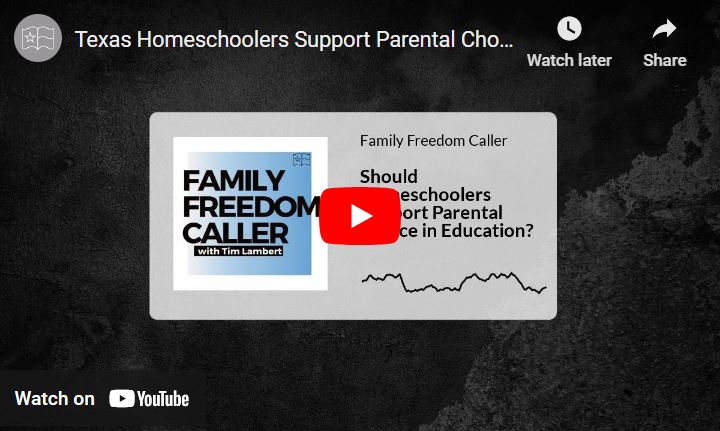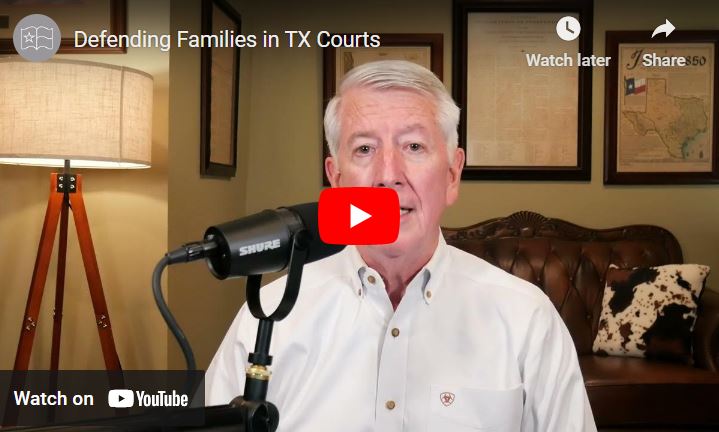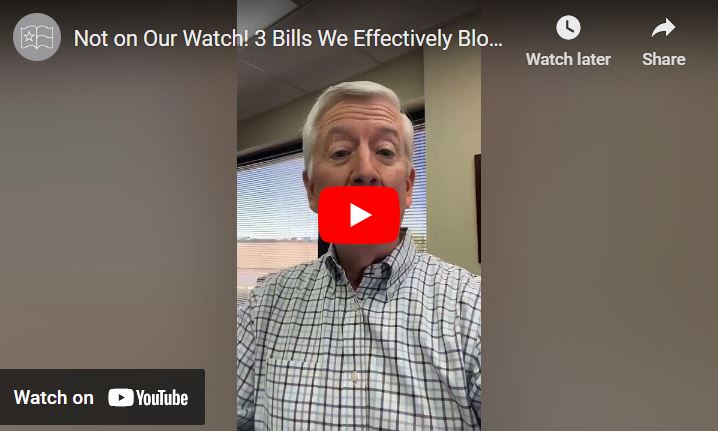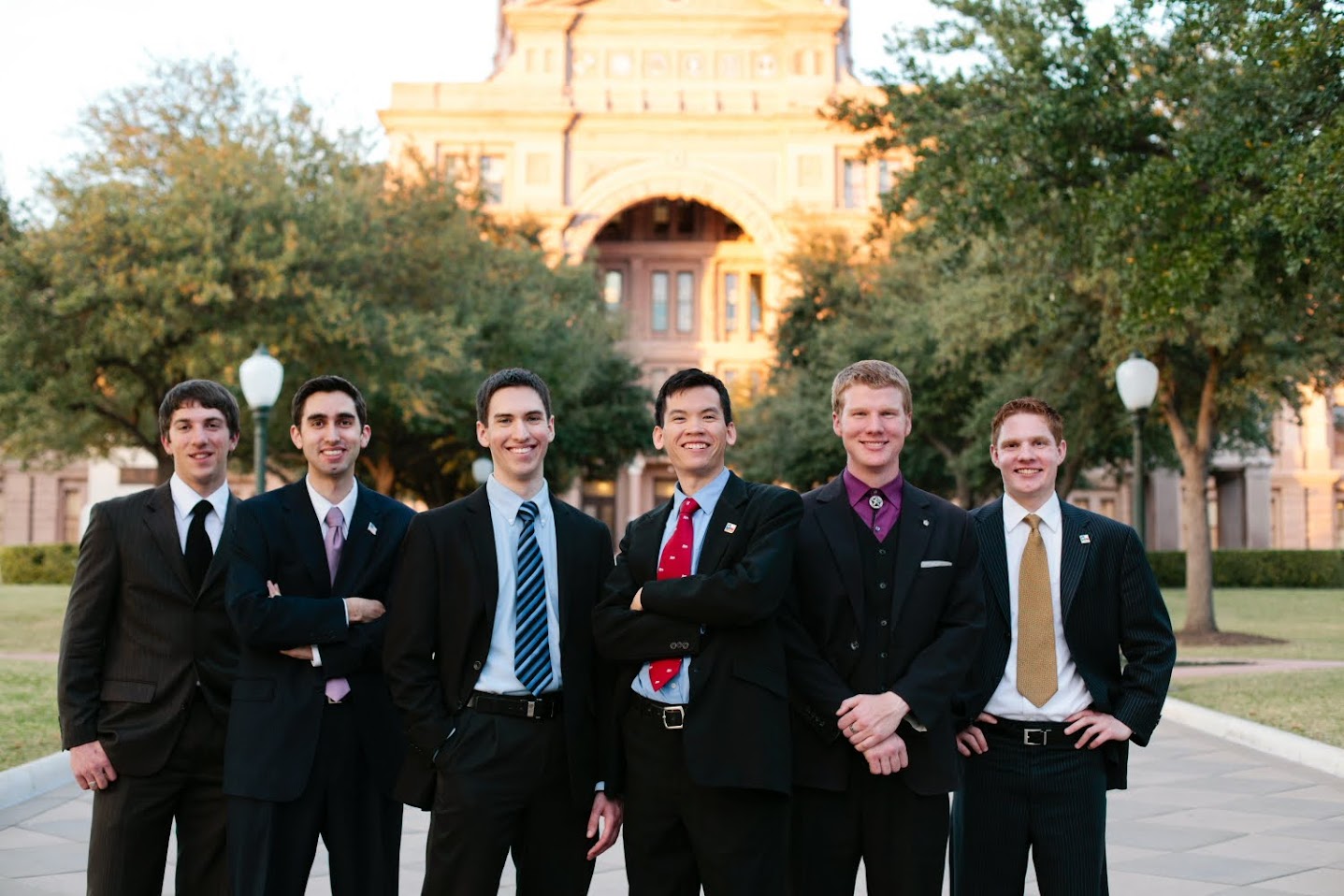
By Ashlynn McFarland
Question: Give us the backdrop to the creation of the THSC Watchmen.
Paul Hastings: In 2010, Tim Lambert asked me if I could help with some stuff at the Texas legislature. I was 20 years old, just out of high school for a couple of years, doing college from home and dual credit classes. I had a job also, but he asked me if I could help him out with THSC because I lived in Austin, and he lived in Lubbock, and he was like, hey, you know, instead of me flying down for these hearings, can I send you down from your house?
I said sure, how many hours a week do you think it will take and he said, oh, I don’t know, about 10 hours a week.
I said okay. Yeah, I can do that. I’ll do that and my school. So the spring rolled around, the session started, and that would have been January 2011.
Question: What was the first week like?
My first week was about 10 hours, so I went to committee hearings and researched bills. The second week I spent about 20 hours. In the third week, I spent about 30 hours; by the sixth week, I spent about 60 hours a week.
So I was able to put my college classes on hold, and I was working full-time for THSC.
Actually, more than full-time for THSC.
Just like banging out stuff. And it’s most likely because I had an aptitude for looking through legislation, looking for loopholes.
And things that I didn’t know that I knew. But I had a background speech and debate from high school speech and debate, so it came to me naturally. And it was just crazy working around the clock.
Question: Where were you living at the time?
Also, I should have mentioned I live an hour away from the capital. So every time I would drive an hour into the capital work, therefore like a full day and the driving hour back, right? So I had no social life, just working on legislation.
So we finished that session and did a lot of important stuff. Tim called that one of the worst sessions we’d ever had.
That may have been because there were a lot of bad bills in the file. And when he calls it the worst session, it was not that we did a terrible job.
It was more, wow, so much bad stuff had been filed, and we had to proactively work to stop it.
We ended up transforming some bad bills and we stopped a lot of really bad bills. There was one bill that year in 2011, where a legislator was basically trying to revoke the ability for parents to teach their children how to drive a car, parent-taught drivers education.
So that was one thing that we were looking through, but we stopped that bill, which is great, and it had different caveats, too, but like it was in certain scenarios, kids would not be allowed to be taught how to drive cars by their parents.
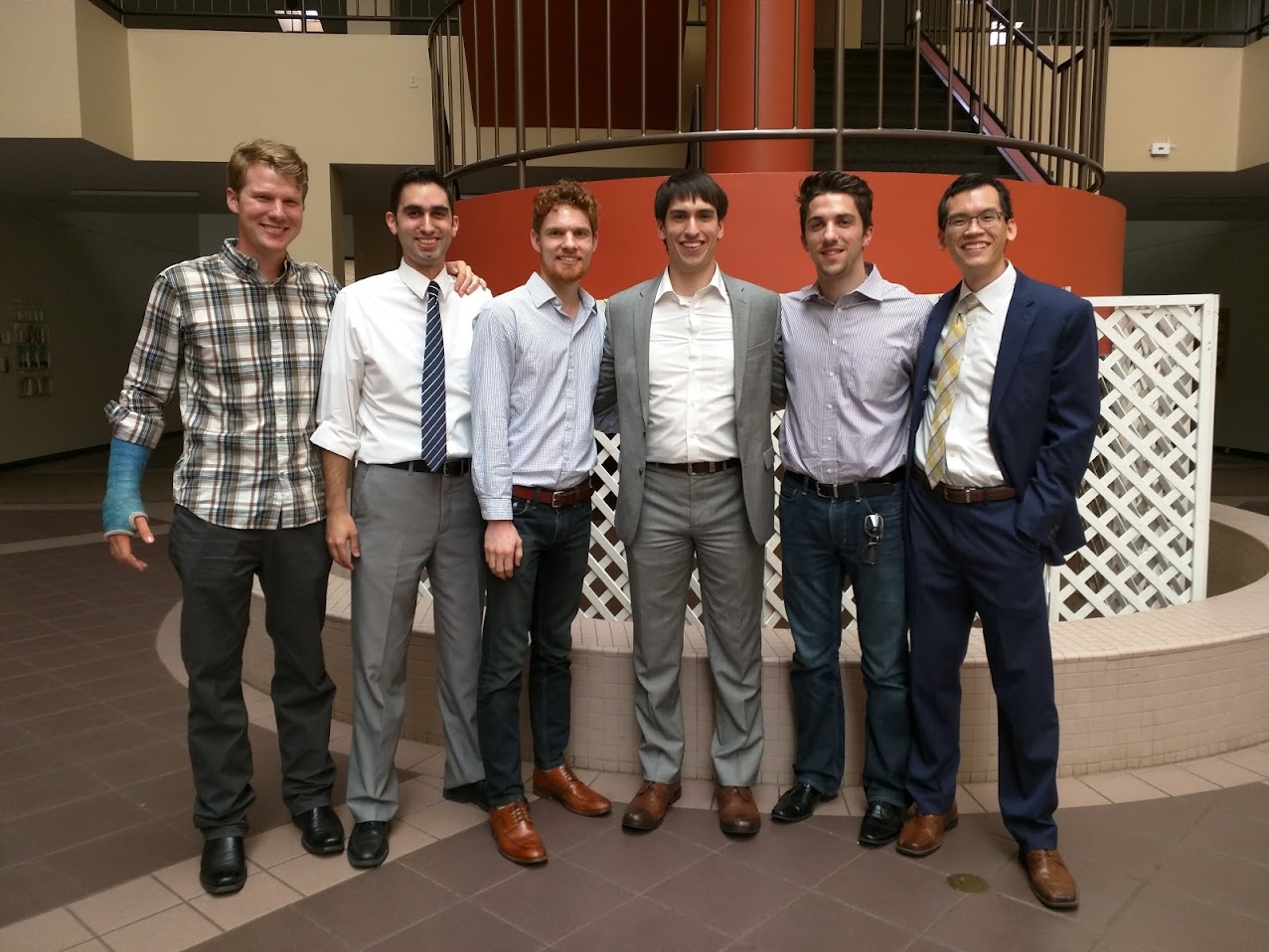
Question: Did you have to relocate from Austin?
We eventually moved along, finished that session, and then I moved to Lubbock, Texas, at the end of that year to work for THSC full-time.
In 2012, I became the policy director at THSC, and we did the election cycle. And as we’re wrapping up 2012 and getting ready for 2013, the next legislative cycle.
Probably by October of that year, I just looked around and was like, man, I don’t want to do the same thing I did again last time.
Question: So that got you thinking about doing it with others?
It was a lot of work that I did all by myself with Tim, of course, but mainly I was by myself. There was so much to do, and there was more that we could do if we weren’t playing defense the whole time.
What if we wanted to play offense, you know, and get stuff passed, and so I had had a few interns, but I was at THSC in Lubbock, and a few of the interns worked remotely. I brought a few interns to live with me for like a couple of weeks at a time.
And my experience was that bringing in interns to work for me face-to-face in person was more efficient than trying to do remote interns who have more difficulties when you try to enforce deadlines.
I need someone boots on the ground because the legislature, you can’t get stuff in late, past deadlines. You got to do it, really, right? And you’ve got to be on time.
There’s no grace from legislators for getting stuff in late, right? It’s a running clock.
Question: So, that was the beginning of the THSC Watchmen?
Right! I came up with this idea, I will recruit five young men to come and live with me in Austin in my apartment, and they’ll be my full-time interns.
And so I basically hand-picked a group of guys, and I approached ten young men that I knew all of them would do it, and five of them agreed to do it. Actually, I approached nine.
One of them approached me. I didn’t know him, and that was Jeremy Newman, which, ironically, he’s the one who’s been at THSC the longest.
So all these guys I recruited, they were all straight out of high school, or they’ve been in college for like one year, but they all agreed to take the semester off and work for THSC full-time.
My pitch to them was, guys, we’re not going to pay you money. You’re not going to get accolades and fame and glory from this. But, it will be a very unique educational experience.
You will make lifelong memories; you might be able to get college credit from your own school, but you’ll have to figure that out with your own university, but most importantly, you’ll actually be in enacting actual real-life legislation like this is not just a hobby.
Question: So it helps you see how things work in real-life?
These are actual bills that will affect real people. And you might actually benefit from this legislation that we’ve passed or that we prevent 20 years from now when you have your own kids, and if the Mormons can dedicate two years of their lives to a false gospel that will eventually send them to hell.
Surely, you can dedicate six months of your life to actual legislation that you will benefit from here on this earth, that’s what I said, and it was compelling for many of them. So five guys agreed, and that’s how we started the program. So the program was really started kind of out of my own selfishness, you know?
Well, not quite from selfishness but more of an overwhelming feeling of, “Wow. The last session was pretty terrible. We need help and extra manpower.”
Q: Do you have a favorite memory from that first session?
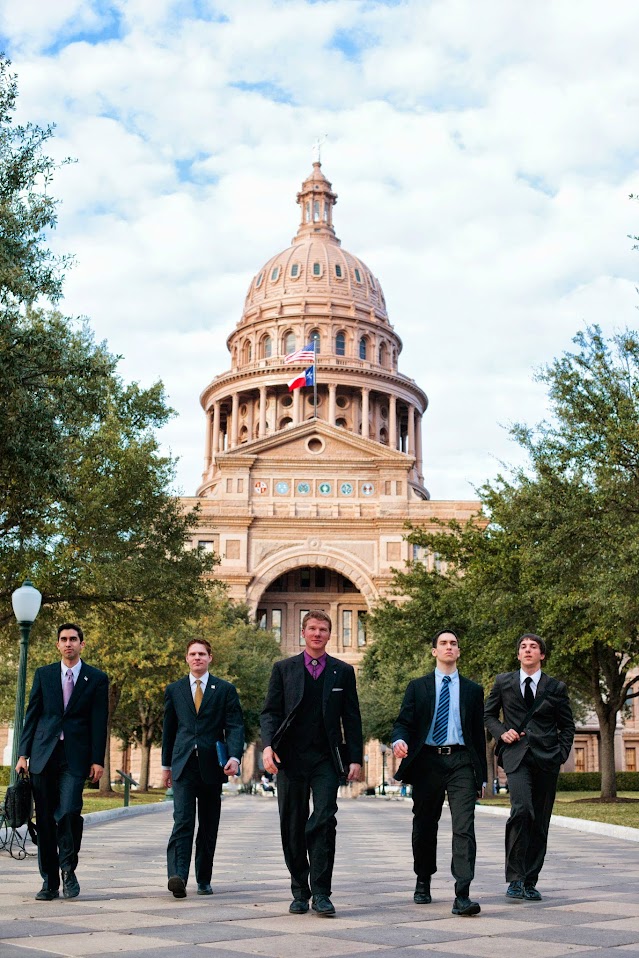
PH: Good question, lots of fun memories from that session. Generally speaking, my favorite memories were just bonding with the other guys. Six of us were in the apartment together.
We called ourselves the Texas THSC Watchmen, and we had a great experience just getting to know each other.
And, of course, we worked on legislation around the clock, and there’s something unique about being through joint suffering, which creates some kind of bond. And we’ve now been friends for the last ten years. So after the session finishes, we have a little Facebook group, and the six of us will leave random messages to each other, and we’ll celebrate stuff; we all have kids and celebrate babies, and we’ll reminisce.
Question: How long has it been since the first THSC Watchmen group was established?
And it’s been ten years since we did all that. But we’re still good friends. We see each other about each other every once was like, oh, that’s cool, man. Right now, I think we’re trying to organize a 10th-anniversary party. The six of us, with our wives and our kids combined six of us, have. It’s got to be around 15 kids, which is kind of crazy. We were at each other’s weddings. We just made lifelong friendships.
If I had to choose a random memory, on Craigslist, one time, we found this free piano and a free organ, like a foot-pumped organ; it wasn’t electric. It was you had to put their feet. And so we got this free piano and this free organ, and we put it in the bottom basement of our garage, so we played music every night.
We’d invite other guy friends to come over, and we’d be playing ping-pong, playing the piano. And jamming it out.
We were very much these stereotypical homeschoolers, but we had a lot of fun. I also think about the spiritual state of each of the guys; we were all firm believers at that time. And all six of us, ten years later, are all passionate about our faith now.
Q: Why is it essential to have homeschool graduates lobbying at the capital?
PH: So one of the major things I said, when I made that pitch to the guys was, “Who’s better qualified to share with legislators about homeschoolers’ beliefs than a homeschooler? Furthermore, who’s in a better position to be proof of what homeschooling can create than a homeschooler graduate.”
So that was a requirement for all Watchmen; you had to be homeschool graduates.
And all of us were; because of that, we felt passionately. And it was more than just a job, right? The Watchmen, we’re not paid money, right? Let’s be clear. I was paid money because I was on staff at the THSC for those three years.
But all the other guys, they weren’t paid. So you had to really believe it to volunteer to do it for five months.
Q: What was the perception of THSC in Austin at the beginning of the program?
PH: Early on in that first year in 2013, we set one of the guys to be in charge of PR. His goal was to get exposure for the homeschool community. So whenever we have a big news conference or a big bill, he would try to contact newsgroups to tell them about our legislation.
One of the selling points that we discovered was that if we mentioned, “By the way, there are these six young guys, ages 19 to 22, living with each other, and they’re working on this legislation for free for the next six months.” that would tend to get traction.
We would use just this strange uniqueness of our program that would get exposure for the legislation we were working on, and I do remember CBS News from Austin came to one of the press conferences that we had, and they came and spent the afternoon with us, filming us talking and going around the hallways and different offices.
It was just crazy because they followed us, and it was because we were really young guys. If we had been, like a 42-year-old lobbyist working on this piece of legislation, they probably would have passed that story, but there was this human interest angle, and that’s why they would follow up on us.
Another time the Austin American Statesman, which is one of the three largest newspapers in Texas, came to spend a day with us, and we ended up on the front page of the Austin American Statesman, the Saturday edition.
At one point, Tim and I walked into a senator’s office to discuss some legislation with him. He looked at me and said, “Hey, you’re in the paper.”
As he pointed to that Austin American Statesman sitting on his coffee table, we were on the front page of the paper. It wasn’t as if, “Oh, we changed his mind,” but it definitely elevated his opinion about THSC in that brief snippet of time.
Q: What do you think homeschooling parents and families are doing well? What is something that homeschooling families need to be aware of?
PH: First thing homeschoolers, the fact that we’re teaching our kids! That’s a huge thing. My wife teaches three out of our four children. Our oldest is officially in first grade, and the longer we do it, the more I realize that the sheer amount of time we spend with our kids is irreplaceable. We will never be able to replicate these things or make up for this season in life.
Our five-year-old will only be five years old for one year of her life, and that opportunity as a five-year-old will be gone for eternity. And so, when I think about what our homeschooling parents and families are doing well-spending time with each other.
One thing that we should be aware of is the spiritual status of our families. Let’s not take it for granted: “Oh, because I’m a Christian and we go to church, our kids will also grow up to be Christians.” Do not take that for granted. We have to be intentional about that.
Pray for them, look for specific ways to invest in them spiritually, and get them opportunities to have discussions even when they’re five years old. So that’s a way of continuous improvement.
Q: How do you think your time with THSC and the Watchmen group influenced or even directed the decisions you’ve made in your life?
PH: Wow, well, right off the bat, I made friendships that last a lifetime. The guys in our group, Nathan, Ben, Jeremy, Trent, David, and me, are life-long friends. I hope we grow old with each other, and 80 years from now, when we’re all 102, we’ll be hanging out in the same nursing home. Personally, doing the Watchmen program gave me a lot of leadership experiences that I could use in my career path and reference some of those experiences early on as I was seeking other jobs.
I was able to point out that I’ve got a lot of experience starting stuff. Here’s one program that I thought of, launched, did the budget for, pitched, got approval for, recruited for, ran through, and was responsible for all of it from beginning the end. And it’s still going on a decade from now.
Q: If you could cast a vision for the future of the homeschool movement, what would you see?
PH: Wow, I really think it’s a spiritual emphasis that we should not take homeschooling for granted, that we should not take the spiritual freedoms that we have in America for granted, and we should not take for granted that our children will become Christians just because we’re Christians. One thing I am burdened with is this idea of cultural Christianity, even in the homeschool community.
Cultural Christianity is a dead faith.
If it’s not a genuine faith that’s bound through worship and utter submission to Jesus Christ, the son of God, and it’s just like this mentalist and ethical framework that you live by, not sold-out devotion to the son of a living God, there’s a huge difference in that.
Q: How do you think the Family Freedom Project will help facilitate that vision?
PH: It’s a parent’s right to make decisions for their kids. The fundamental right of a parent to make decisions for their kids is the fundamental freedom that gives us the freedom to homeschool our kids in the first place and to choose the religious upbringing of our kids as well.
So the Family Freedom Project will have a lifelong lasting impact, not just on educational decisions, but on spiritual and religious decisions as well.
Q: If you could give one piece of advice, the Class of 2023 Watchmen, what would that be?
PH: Number 1, Enjoy the moment, don’t take it for granted, and soak in every moment of what you’re doing right now. Number two, know that the Lord is in control. If you have personal self-doubts, and maybe you do, about who the Lord is. Hey, that’s okay! Have that conversation, talk with someone, and be honest with yourself.
A third thing legislatively, be humble. One time during session one year, Tim Lambert and I were getting chewed out by Byron Cook, the chairman of the Transportation Committee; the same legislator was trying to pass that bill that would make it illegal for parents to teach their children how to drive a car.
We got chewed out so badly by that dude, not because of something we did but because of something he did, actually, and the dude was chewing us out.
And I remember I was looking forward to seeing Tim’s epic comeback. Instead, Tim just rolled with the punches.
He did not try to defend himself. All he said was, “Well, I apologize.” And mentally, I was like, what are you doing, man? You don’t need to apologize. We’re not wrong. We did everything right, and the other guy is in the wrong.
And he was at a loss for words, and after a while, just said, “Well, how do you want to fix the bill?” And then, we had a regular conversation where we could share our opinion and amendments to the bill, and we got it done. And that exact moment is stuck on my mind forever because Tim could have gone toe-to-toe with Byron, we could have had a huge argument, and walked out of there having done nothing.
But instead, Tim just swallowed his pride and apologized even though we were not in the wrong, and we were able to have a conversation, fix the bill, and get the end goal done.So because we’ve swallowed our pride, we were able to have professional success, which ultimately had success for hundreds of thousands of other children in Texas.
By the way, if your parents taught you how to drive, you should thank Tim Lambert.
Ashlynn McFarland
Ashlynn McFarland is a K-12 homeschool graduate who served as the Marketing Intern for the THSC Watchmen during the last legislative session

By Ashlynn McFarland
Question: Give us the backdrop to the creation of the THSC Watchmen.
Paul Hastings: In 2010, Tim Lambert asked me if I could help with some stuff at the Texas legislature. I was 20 years old, just out of high school for a couple of years, doing college from home and dual credit classes. I had a job also, but he asked me if I could help him out with THSC because I lived in Austin, and he lived in Lubbock, and he was like, hey, you know, instead of me flying down for these hearings, can I send you down from your house?
I said sure, how many hours a week do you think it will take and he said, oh, I don’t know, about 10 hours a week.
I said okay. Yeah, I can do that. I’ll do that and my school. So the spring rolled around, the session started, and that would have been January 2011.
Question: What was the first week like?
My first week was about 10 hours, so I went to committee hearings and researched bills. The second week I spent about 20 hours. In the third week, I spent about 30 hours; by the sixth week, I spent about 60 hours a week.
So I was able to put my college classes on hold, and I was working full-time for THSC.
Actually, more than full-time for THSC.
Just like banging out stuff. And it’s most likely because I had an aptitude for looking through legislation, looking for loopholes.
And things that I didn’t know that I knew. But I had a background speech and debate from high school speech and debate, so it came to me naturally. And it was just crazy working around the clock.
Question: Where were you living at the time?
Also, I should have mentioned I live an hour away from the capital. So every time I would drive an hour into the capital work, therefore like a full day and the driving hour back, right? So I had no social life, just working on legislation.
So we finished that session and did a lot of important stuff. Tim called that one of the worst sessions we’d ever had.
That may have been because there were a lot of bad bills in the file. And when he calls it the worst session, it was not that we did a terrible job.
It was more, wow, so much bad stuff had been filed, and we had to proactively work to stop it.
We ended up transforming some bad bills and we stopped a lot of really bad bills. There was one bill that year in 2011, where a legislator was basically trying to revoke the ability for parents to teach their children how to drive a car, parent-taught drivers education.
So that was one thing that we were looking through, but we stopped that bill, which is great, and it had different caveats, too, but like it was in certain scenarios, kids would not be allowed to be taught how to drive cars by their parents.

Question: Did you have to relocate from Austin?
We eventually moved along, finished that session, and then I moved to Lubbock, Texas, at the end of that year to work for THSC full-time.
In 2012, I became the policy director at THSC, and we did the election cycle. And as we’re wrapping up 2012 and getting ready for 2013, the next legislative cycle.
Probably by October of that year, I just looked around and was like, man, I don’t want to do the same thing I did again last time.
Question: So that got you thinking about doing it with others?
It was a lot of work that I did all by myself with Tim, of course, but mainly I was by myself. There was so much to do, and there was more that we could do if we weren’t playing defense the whole time.
What if we wanted to play offense, you know, and get stuff passed, and so I had had a few interns, but I was at THSC in Lubbock, and a few of the interns worked remotely. I brought a few interns to live with me for like a couple of weeks at a time.
And my experience was that bringing in interns to work for me face-to-face in person was more efficient than trying to do remote interns who have more difficulties when you try to enforce deadlines.
I need someone boots on the ground because the legislature, you can’t get stuff in late, past deadlines. You got to do it, really, right? And you’ve got to be on time.
There’s no grace from legislators for getting stuff in late, right? It’s a running clock.
Question: So, that was the beginning of the THSC Watchmen?
Right! I came up with this idea, I will recruit five young men to come and live with me in Austin in my apartment, and they’ll be my full-time interns.
And so I basically hand-picked a group of guys, and I approached ten young men that I knew all of them would do it, and five of them agreed to do it. Actually, I approached nine.
One of them approached me. I didn’t know him, and that was Jeremy Newman, which, ironically, he’s the one who’s been at THSC the longest.
So all these guys I recruited, they were all straight out of high school, or they’ve been in college for like one year, but they all agreed to take the semester off and work for THSC full-time.
My pitch to them was, guys, we’re not going to pay you money. You’re not going to get accolades and fame and glory from this. But, it will be a very unique educational experience.
You will make lifelong memories; you might be able to get college credit from your own school, but you’ll have to figure that out with your own university, but most importantly, you’ll actually be in enacting actual real-life legislation like this is not just a hobby.
Question: So it helps you see how things work in real-life?
These are actual bills that will affect real people. And you might actually benefit from this legislation that we’ve passed or that we prevent 20 years from now when you have your own kids, and if the Mormons can dedicate two years of their lives to a false gospel that will eventually send them to hell.
Surely, you can dedicate six months of your life to actual legislation that you will benefit from here on this earth, that’s what I said, and it was compelling for many of them. So five guys agreed, and that’s how we started the program. So the program was really started kind of out of my own selfishness, you know?
Well, not quite from selfishness but more of an overwhelming feeling of, “Wow. The last session was pretty terrible. We need help and extra manpower.”
Q: Do you have a favorite memory from that first session?

PH: Good question, lots of fun memories from that session. Generally speaking, my favorite memories were just bonding with the other guys. Six of us were in the apartment together.
We called ourselves the Texas THSC Watchmen, and we had a great experience just getting to know each other.
And, of course, we worked on legislation around the clock, and there’s something unique about being through joint suffering, which creates some kind of bond. And we’ve now been friends for the last ten years. So after the session finishes, we have a little Facebook group, and the six of us will leave random messages to each other, and we’ll celebrate stuff; we all have kids and celebrate babies, and we’ll reminisce.
Question: How long has it been since the first THSC Watchmen group was established?
And it’s been ten years since we did all that. But we’re still good friends. We see each other about each other every once was like, oh, that’s cool, man. Right now, I think we’re trying to organize a 10th-anniversary party. The six of us, with our wives and our kids combined six of us, have. It’s got to be around 15 kids, which is kind of crazy. We were at each other’s weddings. We just made lifelong friendships.
If I had to choose a random memory, on Craigslist, one time, we found this free piano and a free organ, like a foot-pumped organ; it wasn’t electric. It was you had to put their feet. And so we got this free piano and this free organ, and we put it in the bottom basement of our garage, so we played music every night.
We’d invite other guy friends to come over, and we’d be playing ping-pong, playing the piano. And jamming it out.
We were very much these stereotypical homeschoolers, but we had a lot of fun. I also think about the spiritual state of each of the guys; we were all firm believers at that time. And all six of us, ten years later, are all passionate about our faith now.
Q: Why is it essential to have homeschool graduates lobbying at the capital?
PH: So one of the major things I said, when I made that pitch to the guys was, “Who’s better qualified to share with legislators about homeschoolers’ beliefs than a homeschooler? Furthermore, who’s in a better position to be proof of what homeschooling can create than a homeschooler graduate.”
So that was a requirement for all Watchmen; you had to be homeschool graduates.
And all of us were; because of that, we felt passionately. And it was more than just a job, right? The Watchmen, we’re not paid money, right? Let’s be clear. I was paid money because I was on staff at the THSC for those three years.
But all the other guys, they weren’t paid. So you had to really believe it to volunteer to do it for five months.
Q: What was the perception of THSC in Austin at the beginning of the program?
PH: Early on in that first year in 2013, we set one of the guys to be in charge of PR. His goal was to get exposure for the homeschool community. So whenever we have a big news conference or a big bill, he would try to contact newsgroups to tell them about our legislation.
One of the selling points that we discovered was that if we mentioned, “By the way, there are these six young guys, ages 19 to 22, living with each other, and they’re working on this legislation for free for the next six months.” that would tend to get traction.
We would use just this strange uniqueness of our program that would get exposure for the legislation we were working on, and I do remember CBS News from Austin came to one of the press conferences that we had, and they came and spent the afternoon with us, filming us talking and going around the hallways and different offices.
It was just crazy because they followed us, and it was because we were really young guys. If we had been, like a 42-year-old lobbyist working on this piece of legislation, they probably would have passed that story, but there was this human interest angle, and that’s why they would follow up on us.
Another time the Austin American Statesman, which is one of the three largest newspapers in Texas, came to spend a day with us, and we ended up on the front page of the Austin American Statesman, the Saturday edition.
At one point, Tim and I walked into a senator’s office to discuss some legislation with him. He looked at me and said, “Hey, you’re in the paper.”
As he pointed to that Austin American Statesman sitting on his coffee table, we were on the front page of the paper. It wasn’t as if, “Oh, we changed his mind,” but it definitely elevated his opinion about THSC in that brief snippet of time.
Q: What do you think homeschooling parents and families are doing well? What is something that homeschooling families need to be aware of?
PH: First thing homeschoolers, the fact that we’re teaching our kids! That’s a huge thing. My wife teaches three out of our four children. Our oldest is officially in first grade, and the longer we do it, the more I realize that the sheer amount of time we spend with our kids is irreplaceable. We will never be able to replicate these things or make up for this season in life.
Our five-year-old will only be five years old for one year of her life, and that opportunity as a five-year-old will be gone for eternity. And so, when I think about what our homeschooling parents and families are doing well-spending time with each other.
One thing that we should be aware of is the spiritual status of our families. Let’s not take it for granted: “Oh, because I’m a Christian and we go to church, our kids will also grow up to be Christians.” Do not take that for granted. We have to be intentional about that.
Pray for them, look for specific ways to invest in them spiritually, and get them opportunities to have discussions even when they’re five years old. So that’s a way of continuous improvement.
Q: How do you think your time with THSC and the Watchmen group influenced or even directed the decisions you’ve made in your life?
PH: Wow, well, right off the bat, I made friendships that last a lifetime. The guys in our group, Nathan, Ben, Jeremy, Trent, David, and me, are life-long friends. I hope we grow old with each other, and 80 years from now, when we’re all 102, we’ll be hanging out in the same nursing home. Personally, doing the Watchmen program gave me a lot of leadership experiences that I could use in my career path and reference some of those experiences early on as I was seeking other jobs.
I was able to point out that I’ve got a lot of experience starting stuff. Here’s one program that I thought of, launched, did the budget for, pitched, got approval for, recruited for, ran through, and was responsible for all of it from beginning the end. And it’s still going on a decade from now.
Q: If you could cast a vision for the future of the homeschool movement, what would you see?
PH: Wow, I really think it’s a spiritual emphasis that we should not take homeschooling for granted, that we should not take the spiritual freedoms that we have in America for granted, and we should not take for granted that our children will become Christians just because we’re Christians. One thing I am burdened with is this idea of cultural Christianity, even in the homeschool community.
Cultural Christianity is a dead faith.
If it’s not a genuine faith that’s bound through worship and utter submission to Jesus Christ, the son of God, and it’s just like this mentalist and ethical framework that you live by, not sold-out devotion to the son of a living God, there’s a huge difference in that.
Q: How do you think the Family Freedom Project will help facilitate that vision?
PH: It’s a parent’s right to make decisions for their kids. The fundamental right of a parent to make decisions for their kids is the fundamental freedom that gives us the freedom to homeschool our kids in the first place and to choose the religious upbringing of our kids as well.
So the Family Freedom Project will have a lifelong lasting impact, not just on educational decisions, but on spiritual and religious decisions as well.
Q: If you could give one piece of advice, the Class of 2023 Watchmen, what would that be?
PH: Number 1, Enjoy the moment, don’t take it for granted, and soak in every moment of what you’re doing right now. Number two, know that the Lord is in control. If you have personal self-doubts, and maybe you do, about who the Lord is. Hey, that’s okay! Have that conversation, talk with someone, and be honest with yourself.
A third thing legislatively, be humble. One time during session one year, Tim Lambert and I were getting chewed out by Byron Cook, the chairman of the Transportation Committee; the same legislator was trying to pass that bill that would make it illegal for parents to teach their children how to drive a car.
We got chewed out so badly by that dude, not because of something we did but because of something he did, actually, and the dude was chewing us out.
And I remember I was looking forward to seeing Tim’s epic comeback. Instead, Tim just rolled with the punches.
He did not try to defend himself. All he said was, “Well, I apologize.” And mentally, I was like, what are you doing, man? You don’t need to apologize. We’re not wrong. We did everything right, and the other guy is in the wrong.
And he was at a loss for words, and after a while, just said, “Well, how do you want to fix the bill?” And then, we had a regular conversation where we could share our opinion and amendments to the bill, and we got it done. And that exact moment is stuck on my mind forever because Tim could have gone toe-to-toe with Byron, we could have had a huge argument, and walked out of there having done nothing.
But instead, Tim just swallowed his pride and apologized even though we were not in the wrong, and we were able to have a conversation, fix the bill, and get the end goal done.So because we’ve swallowed our pride, we were able to have professional success, which ultimately had success for hundreds of thousands of other children in Texas.
By the way, if your parents taught you how to drive, you should thank Tim Lambert.
Ashlynn McFarland
Ashlynn McFarland is a K-12 homeschool graduate who served as the Marketing Intern for the THSC Watchmen during the last legislative session

